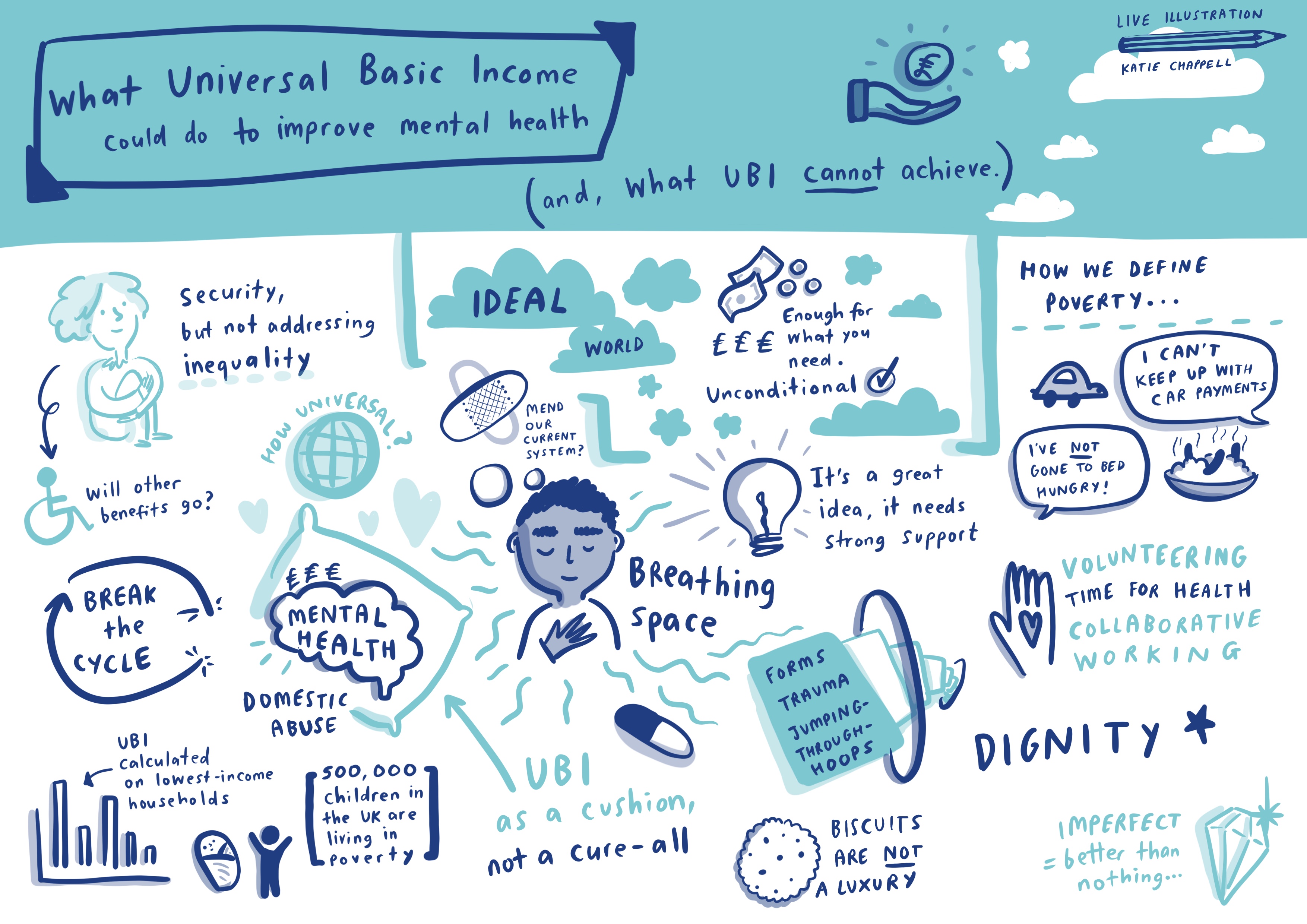
Universal Basic Income (UBI) is a regular, cash payment that everyone receives regardless of their circumstance. It is a policy proposal considered around the world, with a spike in interest in response to the COVID-19 crisis when it was suggested as both an emergency and recovery measure. If set at a high enough level and implemented universally across the globe, UBI has the potential to eliminate absolute poverty.
Most responses to the current mental health crisis have focussed on what individuals, rather than society, can do to improve their mental health. Could a UBI safeguard mental health and prevent mental illness? By tackling social isolation, poverty and inequality, could UBI also be a long-term strategy to prevent mental illness and improve mental health?
This project considered how UBI could accelerate progress towards the UN's No Poverty and Good Health and Wellbeing SDGs and how this progress is linked between these goals and others.
It brought together mental health and social care professionals, mental health charities, people with lived experience of mental illness, benefits recipients, UBI advocates and young people to explore how UBI could improve mental health and how this relates to the SDGs. The aim was to inform Universal Basic Income pilots planned for Scotland and elsewhere about the need to assess mental health outcomes.